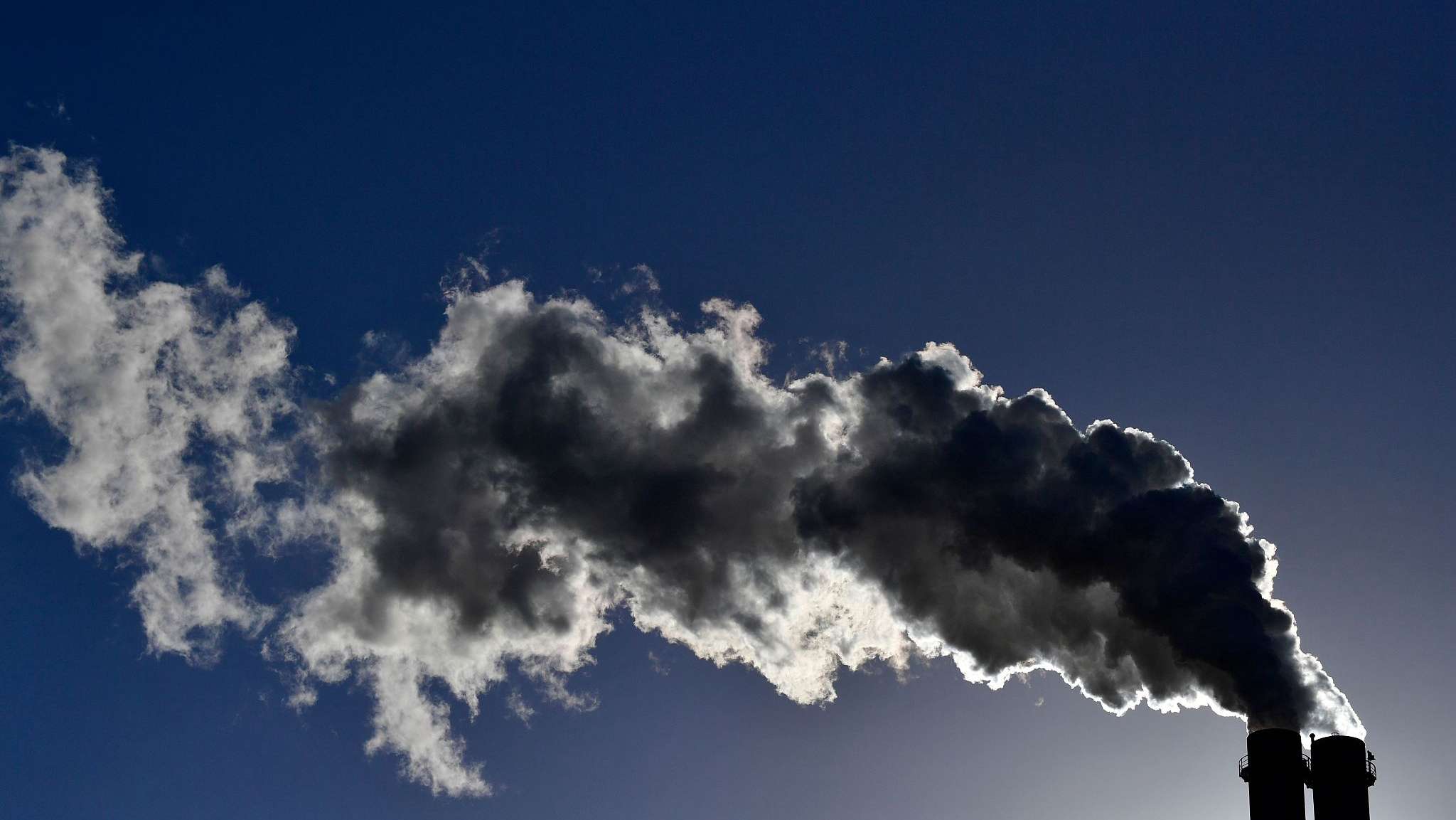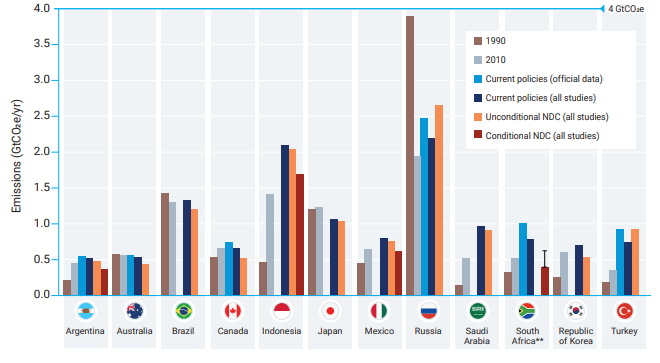
Tech & Sci
15:39, 28-Nov-2018
Global carbon emissions soar as rich nations fail to meet targets
Updated
15:23, 01-Dec-2018
Alok Gupta

Close on the heels of the G20 summit, set to kick off on Friday, a UN report has revealed that most of the rich nations belonging to the group have missed their emission targets.
The G20 countries, except China, Brazil, and Japan, are collectively not on track to meet their unconditional Nationally Determined Commitment (NDCs) for 2030.
"Around half of the G20 members' greenhouse gas emissions trajectories fall short of achieving their unconditional NDCs," said the UN Emissions Gap Report 2018 released on Tuesday.
Argentina, Australia, Canada, the EU, the Republic of Korea, Saudi Arabia, South Africa, and the U.S. failed to meet their commitments, pulling down global efforts to combat climate change.
India, Russia, and Turkey are projected to be more than 10 percent below their unconditional NDC targets. It is uncertain whether Indonesia and Mexico are on track to meeting their goals in 2030 under current policies.
The report highlighted that only 57 countries contributing 60 percent of global emissions are on track to bridge their emissions gap.
Global emissions have spiraled to "historic levels" of 53.5 gigatonnes of carbon dioxide (CO2) equivalent, the report warned.
The findings come a month after the Intergovernmental Panel on Climate Change (IPCC) recommended urgent measures to control emission in order to keep global temperature rise within 1.5 degrees Celsius.
With climate change summit, COP 24, barely a week away, rich nations flouting their NDCs are likely to ignite sharp criticism during the negotiations.
"If the IPCC report represented a global fire alarm, this report is the arson investigation," said Joyce Msuya, UNEP's deputy executive director.

The UN Emission Gap Report shows most of the G20 nations fail to meet their NDC. /UN graphics
The UN Emission Gap Report shows most of the G20 nations fail to meet their NDC. /UN graphics
"The science is clear; for all the ambitious climate action we've seen – governments need to move faster and with greater urgency. We're feeding this fire while the means to extinguish it are within reach."
Investment in clean energy, adoption of efficient technology and increasing tax on fossil fuel might help in reducing heat-trapping CO2 emissions, the UN suggested.
"When governments embrace fiscal policy measures to subsidize low-emission alternatives and tax fossil fuels, they can stimulate the right investments in the energy sector and significantly reduce carbon emissions," said Jian Liu, UN environment's chief scientist.
G20 member states will need to implement additional policies to reduce their annual GHG emissions. They will have to reduce emissions by about 2.5 gigatonnes of CO2 to achieve their unconditional NDCs.
And it needs to be slashed by about 3.5 gigatonnes of CO2 equivalent, to meet their conditional NDCs.
Global emissions should stay below 24 gigatons of CO2 equivalent, to keep the temperature rise within 1.5 degrees Celsius by 2100.
The report calculated that countries will have to raise their climate ambition by three times to meet the two degree Celsius and five times to cap temperature rise by 1.5 degrees Celsius.
Apart from trade negotiations, the report is likely to become one of the critical issues, when heads of G20 countries meet in Argentina from November 30 to December 1.
Xie Zhenhua, China's special representative for climate change affairs, said on Monday, "I believe that at this (G20) meeting, some activities will be carried out on the issue of climate change."

SITEMAP
Copyright © 2018 CGTN. Beijing ICP prepared NO.16065310-3
Copyright © 2018 CGTN. Beijing ICP prepared NO.16065310-3